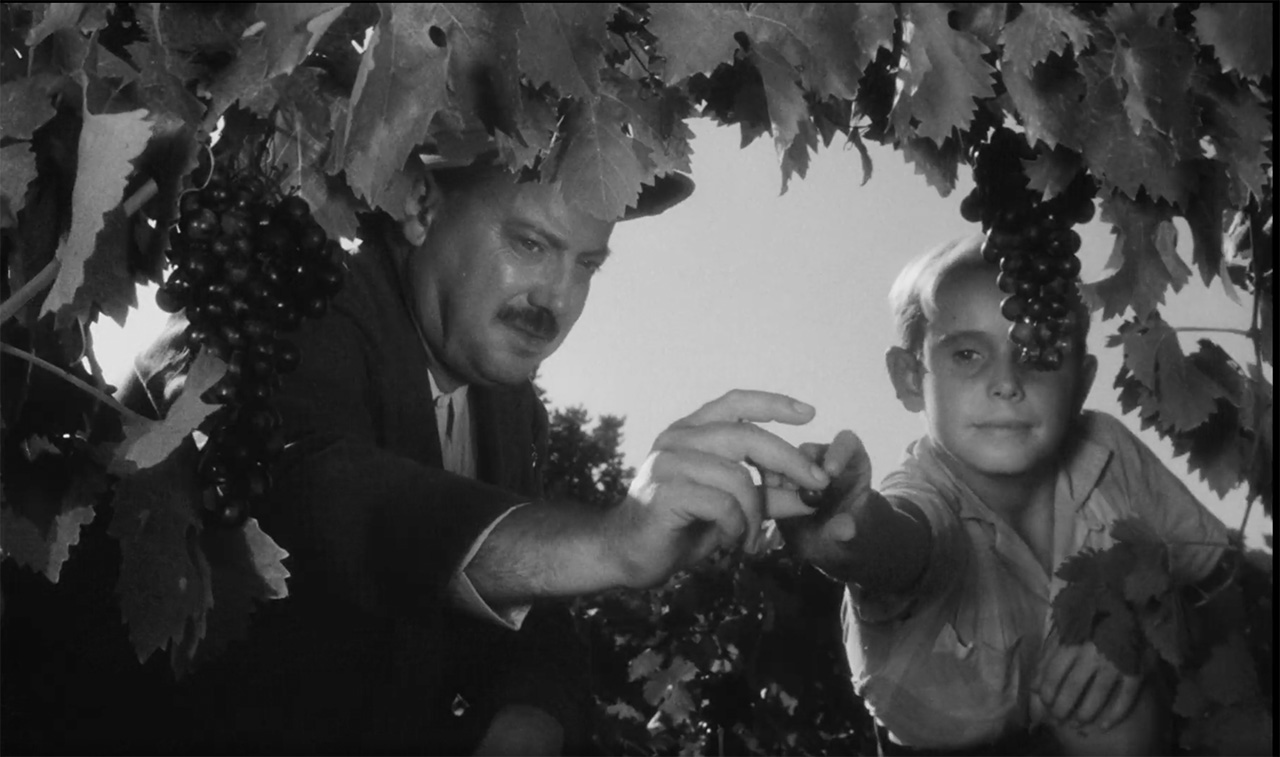|
|
||
|
Pro Tools
FILMFESTIVALS | 24/7 world wide coverageWelcome ! Enjoy the best of both worlds: Film & Festival News, exploring the best of the film festivals community. Launched in 1995, relentlessly connecting films to festivals, documenting and promoting festivals worldwide. We are sorry for this ongoing disruption. We are working on it. Please Do Not Publish until this message disappears. For collaboration, editorial contributions, or publicity, please send us an email here. User login |
Claus MuellerClaus Mueller is filmfestivals.com Senior New York Correspondent New York City based Claus Mueller reviews film festivals and related issues and serves as a senior editor for Society and Diplomatic Review. As a professor emeritus he covered at Hunter College / CUNY social and media research and is an accredited member of the US State Department's Foreign Press Center.
 The Olive Trees of Justice, 1962, France, James Blue, French 4K Restoration 2020
Filmed in Algeria by the US born American documentary film maker James Blue under the cover of making a production about the wine industry, and finished in 1962, the year Algeria became independent, this narrative feature is the only French production shot there during the Algerian War. The Olive Trees of Justice received the first Critics Prize Cannes award for a US film maker. The Olive Trees of Justice (OTJ) is the only feature James Blue made and is an unusually compelling film as evidenced by the Cannes award. Filmed in black and white, Blue approaches the conflict between native Algerians and the French settlers, their decedents the pied noirs, with a neorealistic perspective focusing on the views of the French and Arabs as shaped by their experiences. As distinct from the 1966 The Battle of Algiers feature, recreating the violence defining the Algerian War, Blue’s film conveys a humanistic understanding of the conflict in a documentary style. Given the background of the film and the historical memories of the people in OTJ, Blue excels by staying close to the facts without embracing a partisan view or depicting the armed struggle. Blue avoids any traces of sentimentality. The French annexation of Algeria, expropriation of tribal lands, and colonization resulted in the deaths of more than to 2 million Algerians from 1830 to 1962, far exceeding the number of French military who perished. After Algeria gained independence in 1962, an estimated nine hundred thousand French left Algeria for France.
OTJ was filmed in Algiers and its country side during the last period of the war before independence and includes only a few images of French soldiers and the armed struggle which recede into the background. More relevant for Blue is the private sphere; the past and present recollections rooted in Algerian French relations. Jean, a young professional who has been living with his family in France for many years returns to Algiers to see his dying father, a former farmer. He explores the city of Algiers and searches for Arab friends with whom he grew up on the farm. Life of the common people and their views are more important for Jean than political disputations. The Olive Trees of Justice’s use of non-professional actors including Jan Pelegroi, who wrote the novel on which OTJ is based and a long time resident of Algeria who plays the sick father enhances this portrayal. Like his father, Jean has command of the Arab language but shows no overt emotional attachments to Algeria, despite growing up there, and considers returning to France immediately after his arrival. Jean shares impressions of his encounters in Algiers and the countryside. Blue conveys in numerous flashbacks Jean’s childhood growing up on his father’s farm before WW II and interactions with the farm workers’ children. His father is authoritarian and respected by his peers, having introduced vineyards into the region. He is aware of his elevated status and irritated by his workers not sharing his knowledge. Retired in Algiers, he is angry about the reported destruction of vineyards and olive trees. Despite this, images of the farm do not show that he treated his workers badly. Father and son sense the impeding end of French rule and note the rebellion, but the father can communicate with the Algerians as distinct from some French associates who refuse to speak Arabic and consider all Algerians violent and deserving repression. Jean tracks down Arab childhood friends. Some work in the city, others are in the mountain having joined the freedom fighters. Jean does not pass judgment, knowing that he grew up privileged and cognizant of the deep cultural and economic chasm between the French and the Arabs. New York Claus Mueller filmexchange@gmail.com Distributed by Kino Lorber, now at New York’s Metrograph Theatre through January 27 and streaming through February 4.
26.01.2022 | Claus Mueller's blog Cat. : 1962 Algiers Film Restoration french Film James Blue War of Independence FILM
|
LinksThe Bulletin Board > The Bulletin Board Blog Following News Interview with EFM (Berlin) Director
Interview with IFTA Chairman (AFM)
Interview with Cannes Marche du Film Director
Filmfestivals.com dailies live coverage from > Live from India
Useful links for the indies: > Big files transfer
+ SUBSCRIBE to the weekly Newsletter DealsAbout Claus MuellerThe EditorUser contributions |























